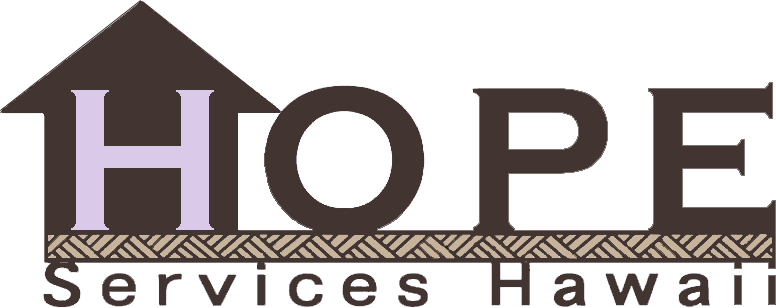Honolulu, September 30, 2010 – The Diocese of Honolulu has created a new non-profit corporation called HOPE Services Hawaii whose primary focus is to help people who are homeless.
The new organization absorbs the diocese’s Care-A-Van program, an extensive Big Island operation of outreach vans, homeless shelters, and services to the disabled, those recently released from prison, and families with children.
HOPE Services Hawaii was launched Sept. 11 when Bishop Larry Silva blessed its new offices at 1315 Kalanianaole Avenue in Keaukaha, facilities the new agency will share with the Office for Social Ministry.
Bishop Silva has named Brandee Menino, Care-A-Van’s program administrator, as the executive director of the new corporation. The announcement was scheduled for Oct. 1.
Carol Ignacio is the president of HOPE Services Hawaii. Its other officers are vice president Samson Aiona, second vice president John Fielding, secretary Anne Harpham and treasurer Sister of St. Francis Beatrice Tom.
Care-A-Van has only served the Big Island. The mobility of the program’s vans enabled its staff of social and health workers to find homeless people on the beaches, in parks and in cars and help them acquire stable housing.
Care-A-Van helped more than 1,000 new homeless persons a year through a dozen programs in Hilo and Kona including emergency and transitional shelters for families, persons with disabilities, and former inmates.
Other Big Island Care-A-Van programs offered counseling, emergency financial aid, and centers that provide food, showers, mail, telephone, transportation and laundry services for homeless persons.
According to Ignacio, the new HOPE Services Hawaii “will allow us to be more visible in our community and expand our reach to all islands.”
She said the “HOPE” in the title stands for Homeless Outreach, Prevention, Education.
According to the non-profit’s articles of incorporation, dated Aug. 11, the “principal purposes” of HOPE Services Hawaii includes providing “programs and services that address many social, behavioral and community problems confronting the people of Hawaii, including but not necessarily limited to homelessness, independent living for seniors and persons with disabilities adequate medical and dental care, and hunger and malnutrition.”
Care-A-Van was funded through contracts with the State Department of Health, the Hawaii Housing Authority, the County of Hawaii, and the Hawaii Island United Way.
It evolved out of the Office for Social Ministry which the diocese established in 1986. Today the Office for Social Ministry works with Hawaii’s parishes and schools in serving Hawaii’s poor.
Other diocesan entities that help the poor include Catholic Charities Hawaii which offers a broad range of social services to families, the elderly and immigrants, and the Office of Affordable Housing, a new department established to develop housing for low-income residents.
Downs, Pat . “Hawaii Catholic Herald – Diocese forms new non-profit to help Homeless” Hawaii Catholic Herald, 30 September. 2011. http://www.hawaiicatholicherald.org/Home/tabid/256/newsid884/3306/Default.aspx
